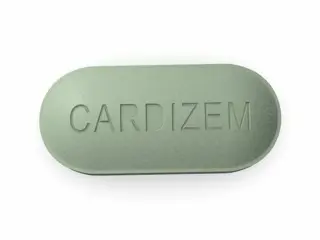| Package | Dosage | Price | Price per Dose | |
|---|---|---|---|---|
| Dosage: 30mg | ||||
| 360 pill | 30mg | AUD513.57 | AUD1.42 | |
| 270 pill | 30mg | AUD404.24 | AUD1.50 | |
| 180 pill | 30mg | AUD287.28 | AUD1.60 | |
| 120 pill | 30mg | AUD213.55 | AUD1.78 | |
| 90 pill | 30mg | AUD172.87 | AUD1.91 | |
| 60 pill | 30mg | AUD124.56 | AUD2.06 | |
| 30 pill | 30mg | AUD66.08 | AUD2.21 | |
| Dosage: 60mg | ||||
| 360 pill | 60mg | AUD704.25 | AUD1.96 | |
| 270 pill | 60mg | AUD536.45 | AUD1.98 | |
| 180 pill | 60mg | AUD361.01 | AUD2.01 | |
| 120 pill | 60mg | AUD246.60 | AUD2.06 | |
| 90 pill | 60mg | AUD195.75 | AUD2.16 | |
| 60 pill | 60mg | AUD134.73 | AUD2.26 | |
| 30 pill | 60mg | AUD73.71 | AUD2.42 | |
| Dosage: 90mg | ||||
| 360 pill | 90mg | AUD1,042.41 | AUD2.90 | |
| 180 pill | 90mg | AUD544.08 | AUD3.03 | |
| 120 pill | 90mg | AUD368.64 | AUD3.08 | |
| 90 pill | 90mg | AUD289.82 | AUD3.23 | |
| 60 pill | 90mg | AUD203.38 | AUD3.38 | |
| 30 pill | 90mg | AUD109.30 | AUD3.64 | |
| Dosage: 120mg | ||||
| 360 pill | 120mg | AUD1,154.28 | AUD3.20 | |
| 270 pill | 120mg | AUD884.77 | AUD3.28 | |
| 180 pill | 120mg | AUD605.10 | AUD3.36 | |
| 120 pill | 120mg | AUD422.03 | AUD3.51 | |
| 90 pill | 120mg | AUD333.05 | AUD3.69 | |
| 60 pill | 120mg | AUD236.43 | AUD3.94 | |
| 30 pill | 120mg | AUD147.44 | AUD4.91 | |
| Dosage: 180mg | ||||
| 270 pill | 180mg | AUD1,263.61 | AUD4.68 | |
| 180 pill | 180mg | AUD864.43 | AUD4.81 | |
| 120 pill | 180mg | AUD582.21 | AUD4.86 | |
| 90 pill | 180mg | AUD460.17 | AUD5.11 | |
| 60 pill | 180mg | AUD325.42 | AUD5.44 | |
| 30 pill | 180mg | AUD177.95 | AUD5.95 | |

Diltiazem Description
Overview of Diltiazem
Diltiazem is a medication classified as a calcium channel blocker. It is primarily used to treat cardiovascular conditions, including hypertension, angina pectoris (chest pain), and certain arrhythmias. By relaxing the muscles of the heart and blood vessels, it helps to lower blood pressure and improve blood flow. This action makes it effective in reducing the workload on the heart and preventing or alleviating chest pain. Diltiazem is available in various forms such as tablets, extended-release capsules, and intravenous formulations, allowing flexibility in treatment approaches.
How Diltiazem Works
The medication functions by blocking calcium channels in the smooth muscle cells of the heart and blood vessels. Calcium ions are essential for muscle contractions; therefore, inhibiting their entry prevents muscle contraction. This causes dilation of the coronary and peripheral arteries, leading to decreased blood pressure and reduced oxygen demand of the heart. It also helps regulate abnormal heart rhythms by affecting electrical conduction in the heart tissues, especially in conditions like atrial fibrillation or flutter. The overall effect is a reduction in cardiac workload and alleviation of symptoms associated with high blood pressure and angina.
Benefits of Using Diltiazem
Many patients find Diltiazem effective in managing their blood pressure levels, leading to a lower risk of stroke, heart attack, and other cardiovascular events. It also provides relief from angina attacks, improving quality of life. For individuals with certain abnormal heart rhythms, Diltiazem helps restore normal heart rate and rhythm, preventing complications linked to arrhythmias. Additionally, some patients tolerate Diltiazem well, with minimal side effects when taken as directed. Its ability to improve blood flow and reduce the strain on the heart makes it a valuable medication in cardiovascular therapy.
Possible Side Effects and Precautions
Like all medications, Diltiazem can cause side effects. Common adverse reactions include swelling of the ankles or legs, dizziness, flushing, headache, and fatigue. Some patients may experience gastrointestinal discomfort such as nausea or diarrhea. Rare but serious side effects may involve abnormal heart rhythms or allergic reactions. It is important for patients to inform their healthcare provider about any pre-existing conditions, especially heart problems, liver issues, or kidney disease. Diltiazem should be used cautiously with other medications, especially those that affect heart rate or blood pressure, to avoid interactions that could lead to adverse effects.
Dosage and Administration
The dosage of Diltiazem depends on the specific condition being treated, the patient's age, and their individual response to the medication. It is typically prescribed to be taken orally, with or without food, at regular intervals. Patients should adhere strictly to their healthcare provider’s instructions regarding dosage and duration of treatment. It is not advised to alter the dose or stop the medication abruptly without medical consultation, as this could cause a resurgence of symptoms or adverse effects. Regular follow-up appointments are essential to monitor the medication’s effectiveness and any side effects.
